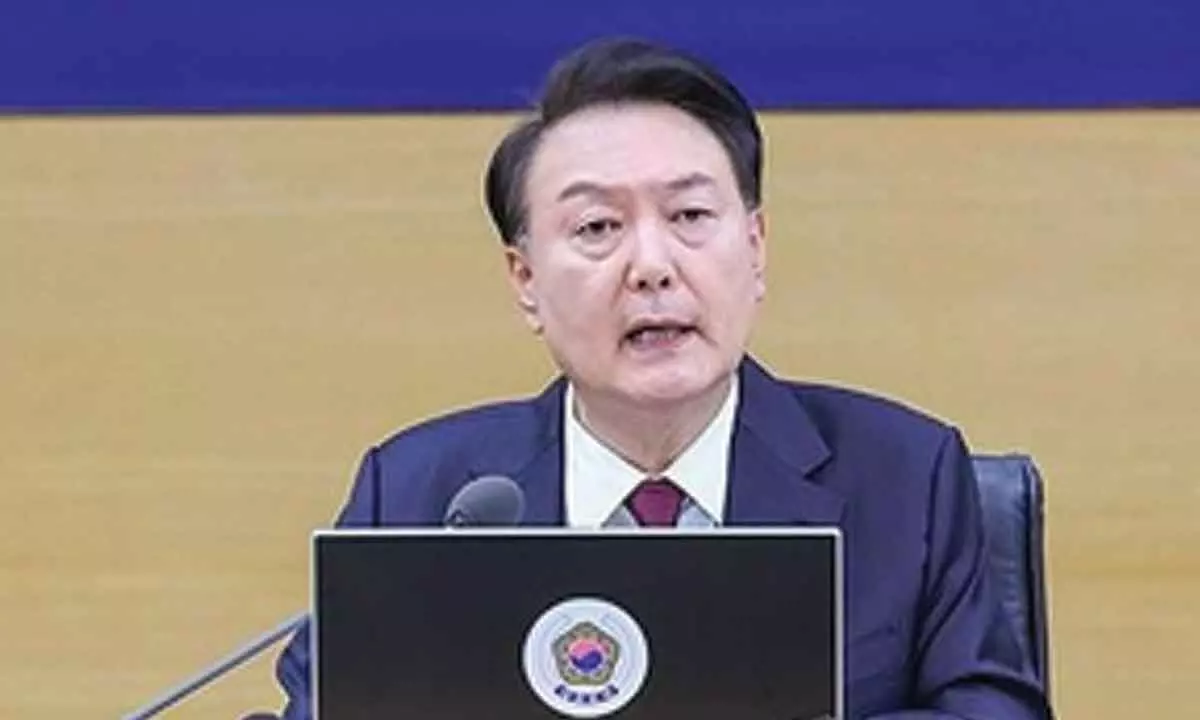Increasing med school admissions by 2,000 minimum necessary measure: South Korean President
Share :

South Korean President Yoon Suk Yeol on Tuesday said the government's plan to raise the medical school enrollment quota by 2,000 is a "minimum necessary measure" aimed at addressing a shortage of doctors with no room for negotiation or compromise.
Seoul : South Korean President Yoon Suk Yeol on Tuesday said the government's plan to raise the medical school enrollment quota by 2,000 is a "minimum necessary measure" aimed at addressing a shortage of doctors with no room for negotiation or compromise.
Trainee doctors protesting the plan staged a mass walkout for an eighth day Tuesday, with around 9,000 resident and intern doctors leaving their workplaces as of Monday, according to the government, Yonhap news agency reported.
The vacuum left patients scrambling to find available hospitals, while one woman in her 80s died after no emergency room would take her for nearly an hour.
"When the people are sick, if they are unable to receive timely and proper treatment, the state would not be fulfilling its constitutional duty," Yoon said during a meeting on cooperation between the central and local governments, held at the former presidential compound of Cheong Wa Dae.
"Increasing the medical school quota by 2,000 is a minimum necessary measure needed to fulfill that constitutional duty of the state," he said, citing a clause in the Constitution that stipulates the people's right to receive health protection from the state and the state's responsibility to provide it. "Our country currently faces a big shortage of doctors. In the near future, the situation will get more serious."
Yoon said the medical reform policy is being pushed with an urgency that this is the last opportunity to save the people and local regions, referring to the government's argument that more doctors are needed to work in essential medical fields, such as high-risk surgeries, pediatrics, obstetrics and emergency medicine, as well as in rural areas.
"This cannot and should not be a subject for negotiation or compromise," he said.
Doctors' groups have fiercely objected to the plan, saying an increase in medical school admissions will only lower the quality of education without addressing the underlying issues of low compensation and high medical malpractice risks in the fields in question.
"Staging collective action by taking the people's health and lives hostage and threatening the people's lives and safety is difficult to justify under any pretext," Yoon said.
"Even if we raise the medical school quota now, the number of doctors will only start increasing 10 years later," he added. "Until when and how do you want us to postpone this?"







